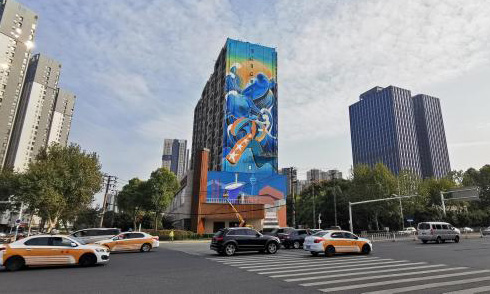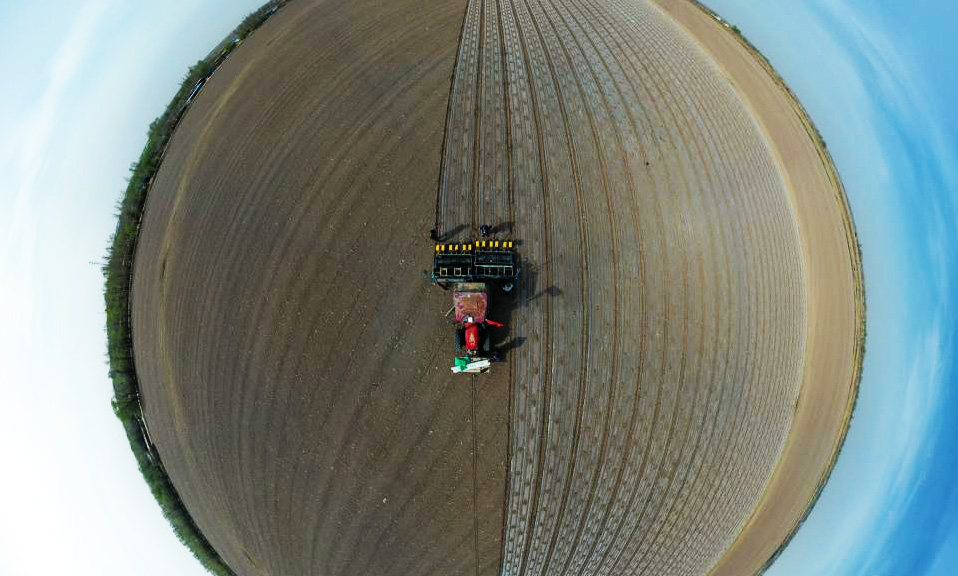"Plogging," a cleanliness rage among Chinese youngsters
YINCHUAN, April 24 (Xinhua) -- Picking up litter while jogging or running may not be an obligation but some environment-conscious youngsters in China view it as a significant social duty.
In 2019, Xu Jia, 35, from Yinchuan, capital of northwest China's Ningxia Hui Autonomous Region, spotted a poster of a "plogging" activity and immediately decided to join in.
Plogging refers to the act of picking up trash and litter while jogging. It is a portmanteau of the Swedish term "plocka upp," which means "to pick up," and jogging.
With a bag, a pair of gloves, or tweezers, joggers beautify their running paths while burning extra calories. The practice helps people, particularly the younger lot, inculcate etiquette.
Xu's son, a first grader, now runs to pick up litter whenever he sees any while he is outdoor. "My son cares for the environment. It is perhaps our biggest gain from participating in plogging," she said.
He was just four years old when he joined plogging for the first time. Now the boy has become a veteran plogger and often teaches other kids how to plog.
"The environment in Yinchuan is constantly improving, and there's not much garbage on the roadside. It's great fun to see children rushing to pick up garbage," Xu said.
Pan Chuang, who works at a local hospital, created a plogging group in Yinchuan.
"Compared with professional running clubs that focus on speed and endurance, plogging is relatively a less intense activity, so both children and the elderly can take part," Pan said.
Pan is responsible for mapping out the running course. Their route passes through several landmark buildings packed with many tiny shops and food stands that generate a lot of trash.
The group has hundreds of members, and Pan is still working to expand its scale.
"We plan to set a new route around several universities this year and invite staff members from the garbage-sorting department to give lectures to attract more participants," Pan said, adding that though Yinchuan is becoming cleaner, there's still a need to raise the public awareness of environmental protection as cigarette butts can be frequently spotted.
Plogging is no longer a novel thing in China. Pan said the club he joined, for example, has sub-groups in 19 cities, including Chongqing, Shenyang, Hangzhou and Hefei, and the scale of membership is continuing to grow.
A mega-event called "Plogging" has been running for four consecutive years in China. "Plogging 2021" saw over 25,880 participants in 256 cities, and together they collected more than 3 tonnes of plastic packaging, reducing carbon emissions by about 4.2 tonnes.
The popularity of such events echoes the growing awareness of environmental protection among Chinese youths. A survey by the Credit Suisse Research Institute released in February this year shows that young and middle-aged consumers in China rank third in the world in embracing sustainable development.
The survey, which polled 10,000 people aged between 16 and 40 about their awareness of environmental protection, states that about 60 to 80 percent of Chinese consumers polled would opt for sustainable transportation and vacation options.
According to the survey, Gen Z and millennials in emerging economies are more into sustainable consumption than their counterparts in developed countries. Mexico, India and China have the highest proportion of environmentally conscious consumers who see the need for more regulation and are willing to pay a premium for sustainable products.
"Each time I see a new face participating in the activity, I have a sense of accomplishment, even more so when children participate alongside their parents. Not only it is a challenge for them to run a certain distance, but it also deepens their care for the environment. This is the greatest meaning of plogging," Pan said.
Photos
 World Book Day: Let's read together
World Book Day: Let's read together Rare silver pheasants flock together in greater numbers to forage at Yishan nature reserve in east China's Jiangxi
Rare silver pheasants flock together in greater numbers to forage at Yishan nature reserve in east China's Jiangxi Young artist takes up brush to create lifelike paintings expressing mankind and nature’s harmonious co-existence
Young artist takes up brush to create lifelike paintings expressing mankind and nature’s harmonious co-existence Cutton farming in full swing in China's Xinjiang
Cutton farming in full swing in China's Xinjiang
Related Stories
Copyright © 2022 People's Daily Online. All Rights Reserved.






